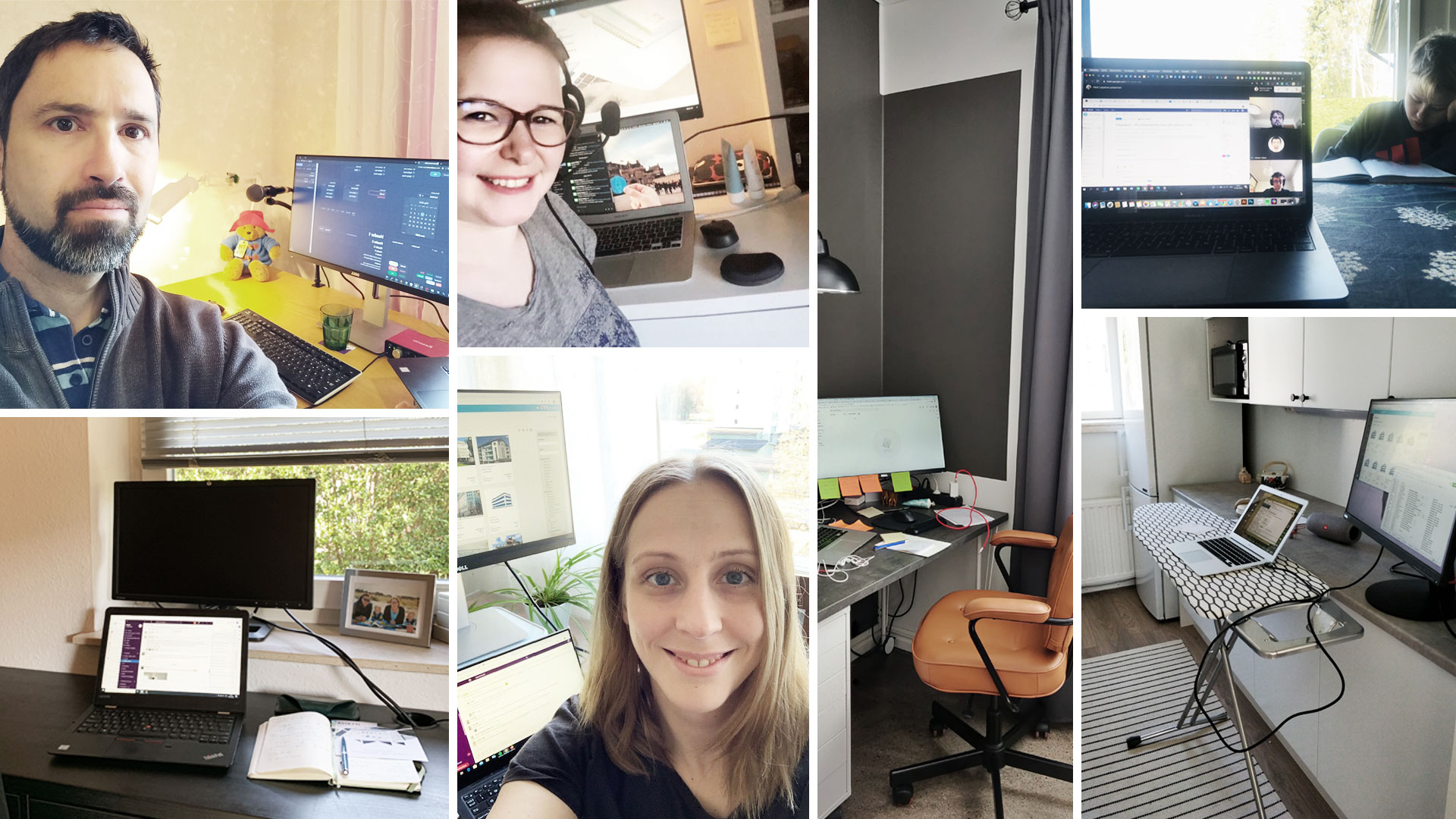Around 5 years ago, shared workspaces and offices became more popular than ever and the number of people working remotely was growing steadily. Now, with the spread of coronavirus, it has pushed many employees into remote working. And these new working models are changing the way investors are looking at offices.
New working models – were we prepared?
Making working more flexible sounds great – but when it comes to turning new ideas into actions, things easily fall by the wayside. Working remotely or having the possibility to work from home was one of them. Since we were forced to leave our offices about 2 months ago, offering remote work to employees became priority number one in many companies – including changing our mindset from “Things are fine, so why change?” to “We can’t work without it”.
This switch is affecting us as employees, as a company and as well as the entire real estate industry. The latest RICS Global Commercial Property Monitor is highlighting the scope for agile working to become more commonplace in the aftermath of the virus, lowering the demand for office space in particular. More than 50% of companies surveyed for the new JLLThermometer fear that the health crisis will have a major and lasting impact on their core business. The possible effects for office markets could be that space requirements are mostly reduced. There is a clear impact on current negotiations of new lease contracts or lease extensions.
Successful and efficient teamwork
Google, Facebook, Amazon, Capital One and others are extending work-from-home policies to September and sometimes far beyond. But there’s work to be done to support employees doing their jobs from afar. Success boils down to a company’s technology setup, culture and management structure. I personally see the technology part as one of the biggest challenges. Even though a lot of employers would like to offer new working possibilities, the lack of having the right tools in place is the main obstacle for not doing so.
Successful and efficient teamwork is something every organization wants to support and move towards, even without any digital tools. It is necessary to have a process and support for remote working. In this context, we recently wrote about how PropTech can support Real Estate to reach these objectives in terms of digitalization. [Read more here]
Cloud Business Intelligence (BI) plays a significant role in making changes in working environments happen. Enterprises are increasingly turning to cloud-based tools, like Customer Relationship Management (CRM) applications, online file collaboration and storage as well as help desk software. This all includes business intelligence tools embracing the agility and accessibility of the Cloud.
We covered the Tech part, let’s have a look at the human aspect
I think before the crisis, many executives didn’t know enough about how remote work would impact their employees, their teams, and their organizations. Now we do.
Earlier, businesses that did not have a flexible workspace policy were taking the risk of losing out on top talents. Remote work has become an increasingly important criteria when applying for a new position. Offering this flexibility not only makes workers happier and healthier but makes workforces more productive.
In these uncertain times, it’s clear that businesses are prioritizing agility and cost efficiencies. You want to expand your business? Flexible working accelerates speed to market in new countries. It also helps you to scale and to reduce capital and operational expenditure.
For the employee working remotely, especially now working from home, it gives you freedom but also demands some discipline. Set your desk ready for work in the morning, structure your day. Make To-Do lists and have a morning meeting with colleagues and go through the day – those are just a couple of best practices we use here at Assetti. Using scrum we estimate the workload and ask for help if needed. We even prepared a sneak peek of how our home offices look like 🙂

For me, I appreciate the possibility to work from home. But I am also looking forward to visiting the office again soon in Summer. I miss my colleagues. Or more specifically, I miss the casual communication which comes so naturally when being in the same office.
Will the home office replace our offices as we know them?
During the last week, German Catella Real Estate AG published an interview with Prof. Dr. Thomas Beyerle addressing exactly that question. In his opinion offices will change, but they will not be replaced by home offices. The main reason is the fact that during the past few weeks we became used to this novelty.
“There were definitely pleasant perspectives connected to the home office. But in the meantime, also the negative sides are beginning to show. Now we need to find out, what is the most ideal way for each society, for yourself, for the employer, for the employee – but we will still adjust on office space. I doubt whether we are sitting there from Monday to Friday, but we will definitely sit closer, we will sit more centrally and we will have a greater degree of autonomy.”
Have we learned our lesson for the future?
Working from home is likely to retain a significant presence in corporate life. It will affect the shape of cities and the commercial real estate industry, and change the culture of companies that for years have been building elaborate temples for their workers. Remote work and home offices are here to stay.
For the industry, there will be adjustments of existing space, for example through sublease contracts, as well as price renegotiations of current tenancy agreements. In the current economic situation, it should be constantly emphasised that it is deemed appropriate for both sides – owners and users — to come up with sensible and sustainable solutions.
I hope that we all see this as a chance – to increase trust in each other, in solutions, in processes. Because now we have seen: if we support each other and be more flexible we can really work this out.








